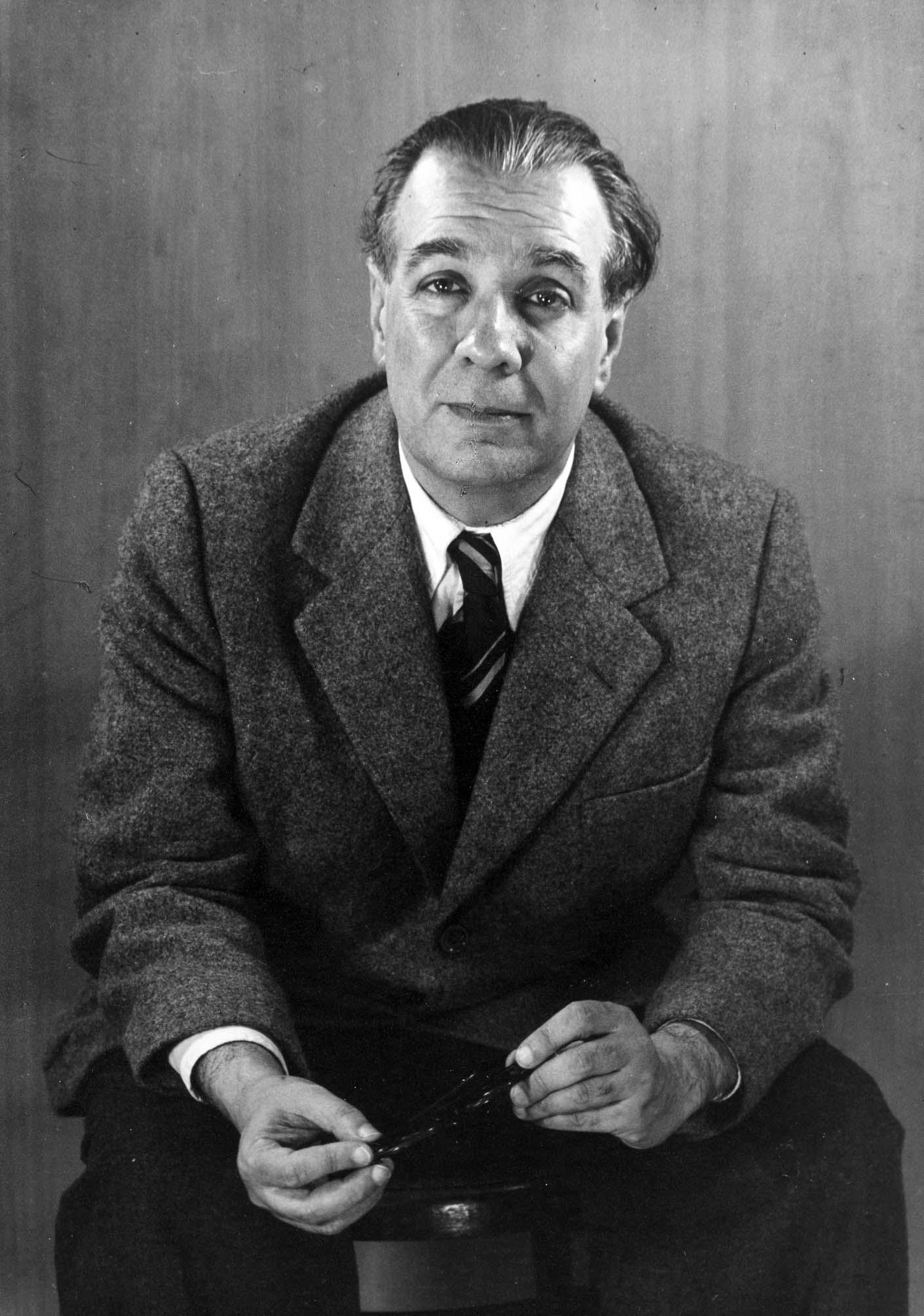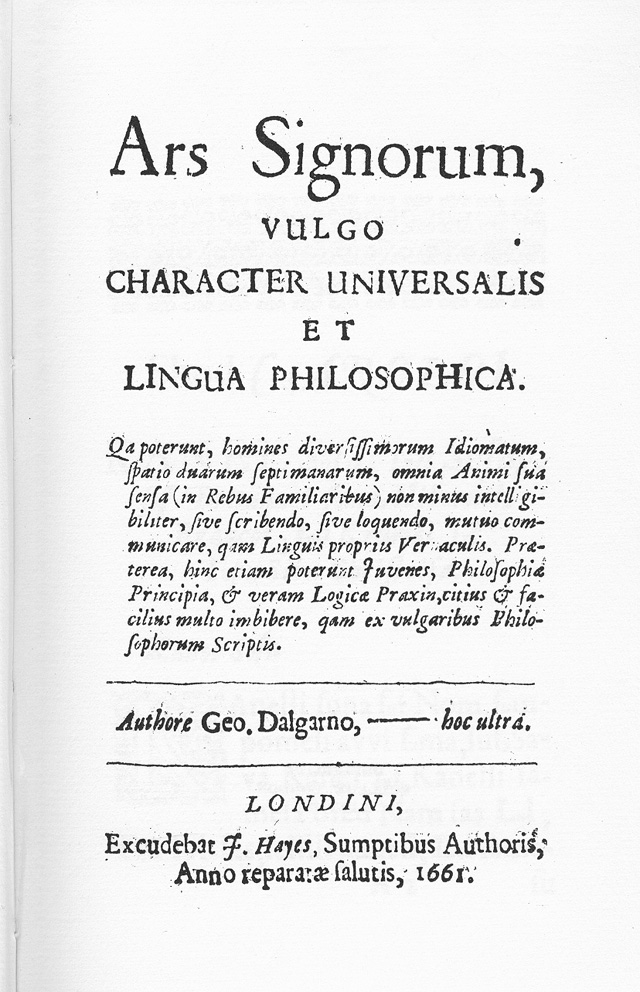|
The Analytical Language Of John Wilkins
"The Analytical Language of John Wilkins" (Spanish: "El idioma analítico de John Wilkins") is a short essay by Argentine writer Jorge Luis Borges, first printed in ''La Nación'' on 8 February 1942 and subsequently published in ''Otras Inquisiciones (1937–1952)''. It is a critique of the English natural philosopher and writer John Wilkins's proposal for a universal language and of the representational capacity of language generally. In it, Borges imagines a bizarre and whimsical (and fictional) Chinese taxonomy later quoted by Michel Foucault, David Byrne, and others. Summary Borges begins by noting John Wilkins's absence from the 14th edition of the ''Encyclopædia Britannica'' and makes the case for Wilkins's significance, highlighting in particular the universal language scheme detailed in his '' An Essay towards a Real Character and a Philosophical Language'' (1668). Wilkins's system decomposes the entire universe of "things and notions" into successively smaller division ... [...More Info...] [...Related Items...] OR: [Wikipedia] [Google] [Baidu] |
Jorge Luis Borges
Jorge Francisco Isidoro Luis Borges Acevedo (; ; 24 August 1899 – 14 June 1986) was an Argentine short-story writer, essayist, poet and translator, as well as a key figure in Spanish-language and international literature. His best-known books, ''Ficciones'' (''Fictions'') and '' El Aleph'' (''The Aleph''), published in the 1940s, are collections of short stories exploring themes of dreams, labyrinths, chance, infinity, archives, mirrors, fictional writers and mythology. Borges' works have contributed to philosophical literature and the fantasy genre, and majorly influenced the magic realist movement in 20th century Latin American literature.Theo L. D'Haen (1995) "Magical Realism and Postmodernism: Decentering Privileged Centers", in: Louis P. Zamora and Wendy B. Faris, ''Magical Realism: Theory, History and Community''. Duhan and London, Duke University Press, pp. 191–208. Born in Buenos Aires, Borges later moved with his family to Switzerland in 1914, where he studied ... [...More Info...] [...Related Items...] OR: [Wikipedia] [Google] [Baidu] |
Celestial Emporium Of Benevolent Knowledge
''Celestial Emporium of Benevolent Knowledge'' ( es, link=no, Emporio celestial de conocimientos benévolos) is a fictitious taxonomy of animals described by the writer Jorge Luis Borges in his 1942 essay "The Analytical Language of John Wilkins" (). Overview Wilkins, a 17th-century philosopher, had proposed a universal language based on a classification system that would encode a description of the thing a word describes into the word itself—for example, ''Zi'' identifies the genus ''beasts''; ''Zit'' denotes the "difference" ''rapacious beasts of the dog kind''; and finally ''Zitα'' specifies ''dog''. In response to this proposal and in order to illustrate the arbitrariness and cultural specificity of any attempt to categorize the world, Borges describes this example of an alternate taxonomy, supposedly taken from an ancient Chinese encyclopaedia entitled ''Celestial Emporium of Benevolent Knowledge''. The list divides all animals into 14 categories. Borges claims that the ... [...More Info...] [...Related Items...] OR: [Wikipedia] [Google] [Baidu] |
Philosophy Of Language
In analytic philosophy, philosophy of language investigates the nature of language and the relations between language, language users, and the world. Investigations may include inquiry into the nature of meaning, intentionality, reference, the constitution of sentences, concepts, learning, and thought. Gottlob Frege and Bertrand Russell were pivotal figures in analytic philosophy's "linguistic turn". These writers were followed by Ludwig Wittgenstein ('' Tractatus Logico-Philosophicus''), the Vienna Circle, logical positivists, and Willard Van Orman Quine. In continental philosophy, language is not studied as a separate discipline. Rather, it is an inextricable part of many other areas of thought, such as phenomenology, structural semiotics, language of mathematics, hermeneutics, existentialism, deconstruction and critical theory. History Ancient philosophy In the West, inquiry into language stretches back to the 5th century BC with Socrates, Plato, Aristotl ... [...More Info...] [...Related Items...] OR: [Wikipedia] [Google] [Baidu] |
Works By Jorge Luis Borges
Works may refer to: People * Caddy Works (1896–1982), American college sports coach * Samuel Works (c. 1781–1868), New York politician Albums * '' ''Works'' (Pink Floyd album)'', a Pink Floyd album from 1983 * ''Works'', a Gary Burton album from 1972 * ''Works'', a Status Quo album from 1983 * ''Works'', a John Abercrombie album from 1991 * ''Works'', a Pat Metheny album from 1994 * ''Works'', an Alan Parson Project album from 2002 * ''Works Volume 1'', a 1977 Emerson, Lake & Palmer album * ''Works Volume 2'', a 1977 Emerson, Lake & Palmer album * '' The Works'', a 1984 Queen album Other uses * Microsoft Works, a collection of office productivity programs created by Microsoft * IBM Works, an office suite for the IBM OS/2 operating system * Mount Works, Victoria Land, Antarctica See also * The Works (other) * Work (other) Work may refer to: * Work (human activity), intentional activity people perform to support themselves, others, or the communit ... [...More Info...] [...Related Items...] OR: [Wikipedia] [Google] [Baidu] |
George Dalgarno
George Dalgarno (c. 1616 – 1687) was a Scottish intellectual interested in linguistic problems. Originally from Aberdeen, he later worked as a schoolteacher in Oxford in collaboration with John Wilkins, although the two parted company intellectually in 1659. Life Dalgarno matriculated at Marischal College, Aberdeen, in 1631. Subsequently, he was a schoolteacher in Oxford in the 1650s. In 1657, he was encouraged to upgrade a system of shorthand on which he was working, by Samuel Hartlib, to a more ambitious universal system and he published on the subject later the same year. This effort brought him into contact with members of the Oxford Philosophical Club, one of the precursors of the Royal Society. Works Dalgarno was the author of ''Didascalocophus or the Deaf and Dumb man's tutor'' (1680), which proposed a totally new linguistic system for use by deaf mutes. Dalgarno was also interested in constructing what he called a 'philosophical language', now more usually referred to ... [...More Info...] [...Related Items...] OR: [Wikipedia] [Google] [Baidu] |
Episteme
In philosophy, episteme (; french: épistémè) is a term that refers to a principle system of understanding (i.e., knowledge), such as scientific knowledge or practical knowledge. The term comes from the Ancient Greek verb grc, ἐπῐ́στᾰμαι, epístamai, label=none, meaning 'to know, to understand, to be acquainted with'. The term ''epistemology'' (the branch of philosophy concerning knowledge) is derived from ''episteme''. Plato contrasts ''episteme'' with ''doxa'': common belief or opinion. The term ''episteme'' is also distinguished from ''techne'': a craft or applied practice. Socrates noted that nous and episteme is requisite for prudence (phronesis). Western philosophy Aristotle Aristotle distinguished between five virtues of thought: ''technê'', ''epistêmê'', ''phronêsis'', ''sophia'', and ''nous'', with techne translating as "craft" or "art" and episteme as "knowledge". A full account of ''epistêmê'' is given in ''Posterior Analytics'', where Ari ... [...More Info...] [...Related Items...] OR: [Wikipedia] [Google] [Baidu] |
Characteristica Universalis
The Latin term ''characteristica universalis'', commonly interpreted as ''universal characteristic'', or ''universal character'' in English, is a universal and formal language imagined by Gottfried Leibniz able to express mathematical, scientific, and metaphysical concepts. Leibniz thus hoped to create a language usable within the framework of a universal logical calculation or ''calculus ratiocinator''. The ''characteristica universalis'' is a recurring concept in the writings of Leibniz. When writing in French, he sometimes employed the phrase ''spécieuse générale'' to the same effect. The concept is sometimes paired with his notion of a ''calculus ratiocinator'' and with his plans for an encyclopaedia as a compendium of all human knowledge. A universal pictographic language: the key to all the sciences International communication Many Leibniz scholars writing in English seem to agree that he intended his ''characteristica universalis'' or "universal character" to be a fo ... [...More Info...] [...Related Items...] OR: [Wikipedia] [Google] [Baidu] |
Artificial Language
Artificial languages are languages of a typically very limited size which emerge either in computer simulations between artificial agents, robot interactions or controlled psychological experiments with humans. They are different from both constructed languages and formal languages in that they have been consciously devised by an individual or group but are the result of (distributed) conventionalisation processes, much like natural languages. Opposed to the idea of a central ''designer'', the field of artificial language evolution in which artificial languages are studied can be regarded as a sub-part of the more general cultural evolution studies. Origin The idea of creation of artificial language arose in 17th and 18th century as a result of gradually decreasing international role of Latin. The initial schemes were mainly aimed at the development of a rational language free from inconsistence of living language and based on classification of concepts. The material of living la ... [...More Info...] [...Related Items...] OR: [Wikipedia] [Google] [Baidu] |
Spencer Museum Of Art
The Spencer Museum of Art is an art museum operated by the University of Kansas in Lawrence, Kansas. Accredited by the American Alliance of Museums, the Spencer Museum seeks to "...present its collection as a living archive that motivates object-centered research and teaching, creative work, and transformative public dialogue." History In 1917, the Kansas City art collector Sallie Casey Thayer donated her collection of over seven thousand works of art, primarily from Asia and Europe to the University of Kansas to form a museum in order to encourage the study of fine arts in the Midwestern United States. In 1928, the school established the University of Kansas Museum of Art, with Thayer's collection as the basis, within Spooner Hall. By the 1960s, under the directorship of Marilyn Stokstad, the Museum of Art outgrew the space. In 1978, Helen Foresman Spencer, another female Kansas City collector, made a substantial gift to fund the construction of a new space, under the directorsh ... [...More Info...] [...Related Items...] OR: [Wikipedia] [Google] [Baidu] |
Rationality
Rationality is the quality of being guided by or based on reasons. In this regard, a person acts rationally if they have a good reason for what they do or a belief is rational if it is based on strong evidence. This quality can apply to an ability, as in rational animal, to a psychological process, like reasoning, to mental states, such as beliefs and intentions, or to persons who possess these other forms of rationality. A thing that lacks rationality is either ''arational'', if it is outside the domain of rational evaluation, or ''irrational'', if it belongs to this domain but does not fulfill its standards. There are many discussions about the essential features shared by all forms of rationality. According to reason-responsiveness accounts, to be rational is to be responsive to reasons. For example, dark clouds are a reason for taking an umbrella, which is why it is rational for an agent to do so in response. An important rival to this approach are coherence-based accoun ... [...More Info...] [...Related Items...] OR: [Wikipedia] [Google] [Baidu] |
University Of Missouri Press
The University of Missouri Press is a university press operated by the University of Missouri in Columbia, Missouri and London, England; it was founded in 1958 primarily through the efforts of English professor William Peden. Many publications are by, for, and about Missourians. The press also emphasizes the areas of American and world history; military history; intellectual history; biography; journalism; African American studies; women's studies; American, British, and Latin American literary criticism; political science; regional studies; and creative nonfiction. The press has published 2,000 books since its founding and currently publishes about 30 mostly academic books a year. Notable publications Among its notable publications were: *Collected works of Langston Hughes *Collected works of Eric Voegelin *Robert H. Ferrell's Give 'em Hell, Harry series about Harry Truman Series *The American Military Experience Series, edited by John C. McManus. *The Collected Works of Langs ... [...More Info...] [...Related Items...] OR: [Wikipedia] [Google] [Baidu] |





